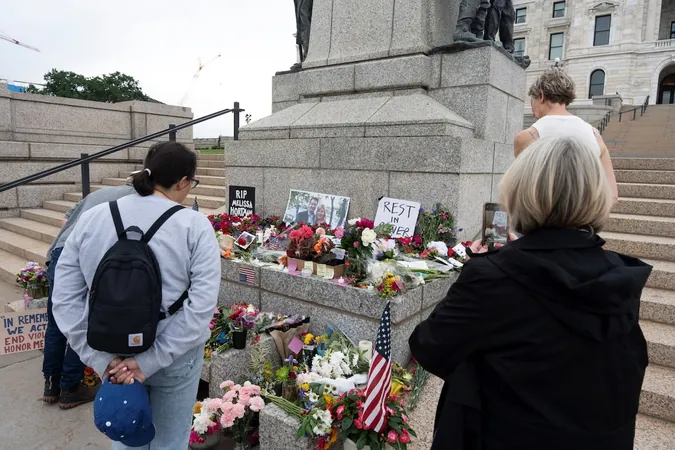
Fear of Measles Outbreak: Imminent Risks for Transplant Recipients and the Immunocompromised
2025-04-25
Author: Olivia
Urgent Health Concerns Amid Measles Resurgence
In Toronto, the story of Laurie Miller, a 59-year-old heart transplant recipient, highlights the dire risks faced by immunocompromised individuals during a measles outbreak. After visiting the emergency room for an ATV accident, Miller received alarming news: she had been exposed to a measles patient.
Despite being part of the cohort considered to have natural immunity by Health Canada, she was advised to quarantine immediately. Her local public health unit in Huron Perth reported over 120 measles cases since October, and Ontario's totals have surged past 1,000, with new cases emerging each week.
Navigating the Risks: Immunocompromised and Measles Vaccination Challenges
For those like Miller, vaccination is not an option. The measles vaccine, containing a live attenuated virus, poses a risk of infection to those with weakened immune systems. Miller describes the widespread fear among immunocompromised individuals, which includes patients dealing with heart, liver, and lung issues, as well as cancer patients on chemotherapy.
Dr. Deepali Kumar from the Ajmera Transplant Centre notes that the current outbreak is unprecedented, occurring in a time when there are more immunocompromised individuals than ever, due to advancements in medical treatments.
Reassessing Protection Strategies for Vulnerable Populations
Recent research indicates that about 4-6% of Canadians are immunocompromised, a significant increase in just a few years. With the current spread of measles, it’s a 'new era,' as Dr. Kumar puts it, prompting health experts to rethink protective strategies for these vulnerable populations.
After her exposure, Miller received immunoglobulin therapy to combat potential infection. Although she has remained healthy, her anxiety in public spaces is palpable. "It definitely affects what I do," she admits, especially in crowded environments.
The Race Against Time: Symptoms and Urgency Post-Exposure
Dr. Kumar expresses concern for immunocompromised individuals who may not seek immediate medical attention post-exposure, noting that immunoglobulin must be administered within a six-day window to be effective. Measles is notoriously contagious and can lead to severe complications, particularly for those with weakened immune systems.
Voices of Concern: Personal Stories from the Immunocompromised Community
Steff Di Pardo, a 29-year-old living with ankylosing spondylitis, also voices her fears amid the outbreak. The treatments she receives to manage her condition render her immunocompromised, and she remains vigilant about her surroundings, especially with rising measles cases.
Researching New Challenges: The Future of Vaccines for Vulnerable Patients
Janna Shapiro, a post-doctoral fellow at the Centre for Vaccine Preventable Diseases, is investigating the implications of live vaccines for immunocompromised patients. She emphasizes the need for a fresh evaluation of risk-benefit scenarios in light of the current public health crisis, aiming to provide effective safeguards for children battling cancer and other serious illnesses.
As community awareness grows and cases continue to surface, experts urge the importance of widespread vaccination to protect not only the general public but also the most vulnerable among us.









 Brasil (PT)
Brasil (PT)
 Canada (EN)
Canada (EN)
 Chile (ES)
Chile (ES)
 Česko (CS)
Česko (CS)
 대한민국 (KO)
대한민국 (KO)
 España (ES)
España (ES)
 France (FR)
France (FR)
 Hong Kong (EN)
Hong Kong (EN)
 Italia (IT)
Italia (IT)
 日本 (JA)
日本 (JA)
 Magyarország (HU)
Magyarország (HU)
 Norge (NO)
Norge (NO)
 Polska (PL)
Polska (PL)
 Schweiz (DE)
Schweiz (DE)
 Singapore (EN)
Singapore (EN)
 Sverige (SV)
Sverige (SV)
 Suomi (FI)
Suomi (FI)
 Türkiye (TR)
Türkiye (TR)
 الإمارات العربية المتحدة (AR)
الإمارات العربية المتحدة (AR)